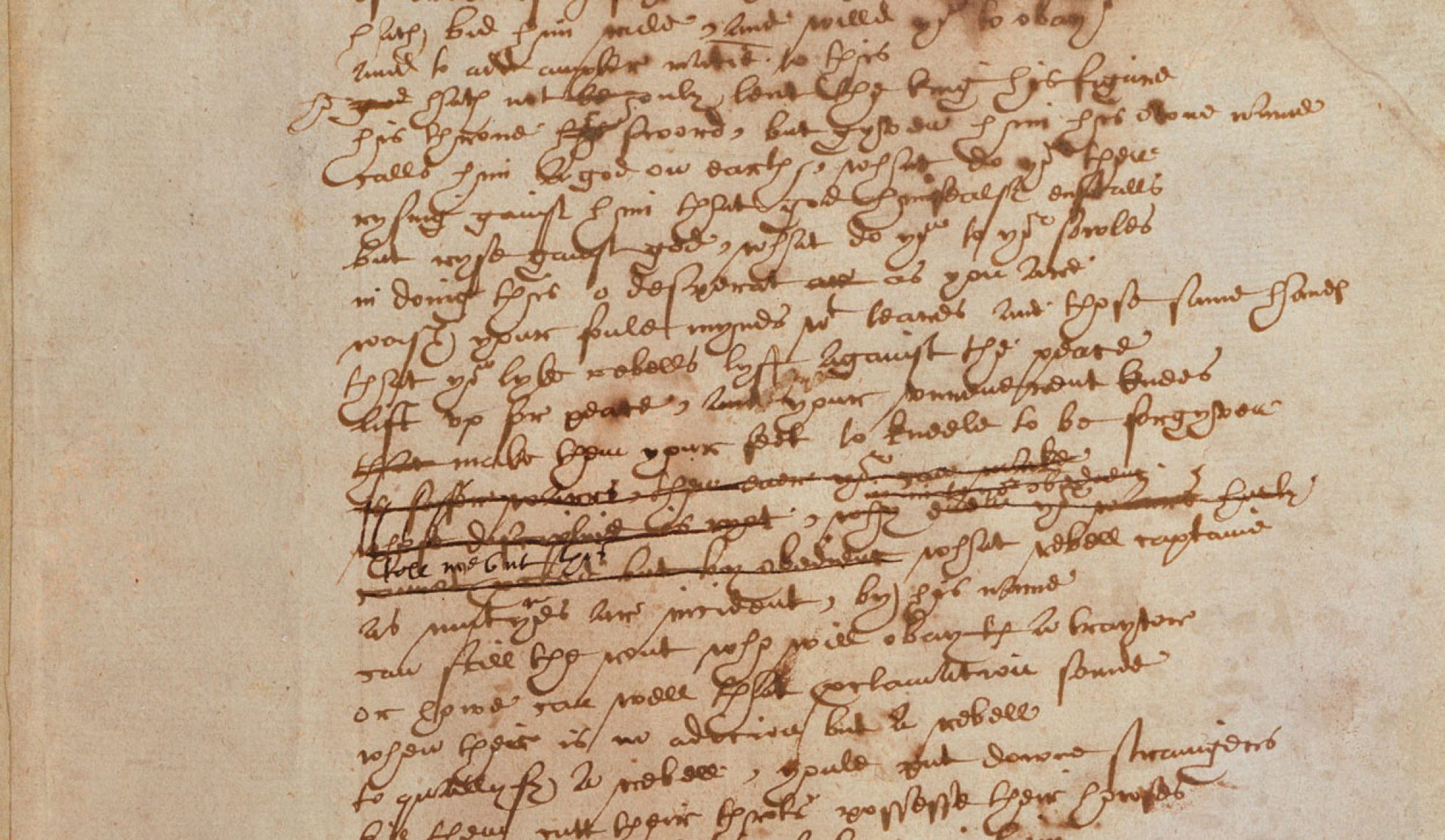These afterthoughts come unusually long after, the break having gotten the better of me; but we’ll see what a longer interval has left in recollection. Before I do that, however, a nod to the exchange between Jessica and Will, which I think gets at some very basic questions for the project of criticism. We have indeed mixed some of the traditional questions of philological historicism with a few excursions, particularly into the polychronic and the multitemporal. Thinking about sound, especially if we take up some of Dolar’s suggestions, may also lead us away from our grounding in the moment of the text’s composition/play’s production/origination. Sound can be historicized, and that is what Bruce Smith is trying to do; but it is resistant to many of the descriptive technologies by which philology proceeds, if only because it hath a dying fall.
I hope we’ll keep these questions alive, at least insofar as we take them to be Shakespearean questions; questions that the plays themselves propose and respond to. Here’s a proposition for our consideration: that literature has long been defined by, or let us say, been recognized by, its resistance to history, its independence from time; an impulse to speak beyond its time (if also, of course, and crucially, to and about its time). That ahistoricism itself is an impulse that takes different forms at different moments. You can historicize the ahistorical. What do you get for doing the reverse—supposing there is an alternative besides presentizing?
The what-do-you-get-for-that question is an important one. To view Hamlet as a truly polychronic object, with no canonical, centering time; what would that be like? Is it an experience anyone could really have or learn to have? Want to have? Could it ever be as rich as what the historical imagination offers? (Imagine approaching an object from a truly foreign culture, a sort of notional first encounter: perhaps you could recognize that it is polychronic in construction and allusion, without being sure of the time of its making; and though you might be curious about when that making was—that could well organize your response—what are the other modes of available curiosity?)
I should say once again, I do not have fixed ideas here, but a general curiosity, and a sense that these questions are gathering rather than ebbing in the intellectual culture of our own moment, so worth conversing with. At moments of doubt, I worry that they are like merely conceptual art, where the idea is interesting to entertain but the encounter with the work leaves you a little stymied about what to do now. At other moments, it feels like such ideas and these works might be in real conversation.
Anyhow, one place where I thought these questions got really interesting last week was in our discussion of the relationship between the historicity of language and the various kinds of time-feeling and time-idea inside the play. We made headway, I thought, with the contest betweeen periodic and running sentences in Hamlet’s soliloquys. The funny historical temporality of the classical period (as in periodic sentence), old/new in the humanist manner, felt always under pressure from the modernity of the running sentence—modern in the sense that Mueller describes, and in the way that form-breaking will often feel modern, when it happens. (Not a rule, of course; iconoclasm can be a primitivizing gesture. Anyway…) Simultaneously in play is their periodic sentence’s project of syntactic foresight, against a more interruptive syntax as a) a mimesis of distracted thinking or b) present-tense dramatic reaction. Maddy’s suggestions about the subjunctive folded the counterfactual into these questions, too, and of course the temporalities of the plot—delay, impatience, and so on. Each sentence seems to be pulled into past and future in ways coded in lexis, syntax, and figuration.
(What about Eliot, by the way? What kind of time does The Four Quartets ask us to consider—is an unanchored polychronism really a fantasy of divine time? What is the present toward which what might have been and what has been [not what was!] point? It’s such a beautiful poem.)
And how much of this—this phenomenological complexity of time, if you like—is part of how the plays sound? This coming week is our week to think about what we have meant by that word, sound, which tends to stand in for reactions that are not explicitly interpretive in character. Nothing in our travels so far lacks a sound, not prosody, not rhetoric, not grammar, not figuration, not history…)
With Jessica’s trick or treat in mind, a send-off from Kurt Schwitters, as himself and as performed by Christian Bok. Till Wednesday!
Jeff
